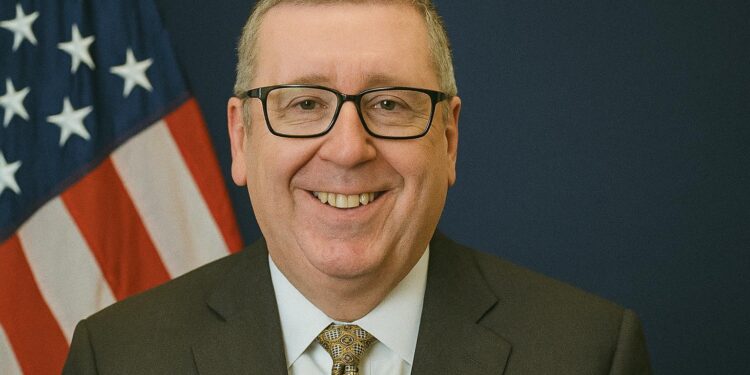A farewell pregnant with possibility
Few diplomatic departures in Central Africa have carried the soft resonance that accompanied Ambassador Eugene S. Young’s final weeks in Brazzaville. Speaking before a small group of journalists, the envoy—appointed in 2022—painted a portrait of bilateral ties that, in his words, are “full of exciting new opportunities.” Such optimism is not mere courtesy. Senior officials at the Congolese Ministry of Foreign Affairs confirm that working groups on defence, commerce and public health have doubled in frequency since 2023 (Ministry communiqué, April 2024).
Security cooperation as the hidden anchor
While trade statistics often steal headlines, security collaboration has quietly become the ballast of the relationship. Congolese marine commandos participated in the US-led Obangame Express drills off Pointe-Noire this spring, refining interdiction tactics against illicit trafficking (US Africa Command, 2024 exercise brief). Earlier, elite units trained in Flintlock counter-terror programmes, an investment the State Department values for its ripple effect on wider Gulf of Guinea stability.
For Brazzaville, whose 170-kilometre coastline abuts one of the world’s busiest shipping corridors, maritime preparedness is not theoretical. According to data from the International Maritime Bureau, reported incidents of piracy in Congolese waters have fallen by more than 40 percent since 2021. Officials in both capitals interpret that decline as early evidence that US-supported capacity-building is bearing fruit.
Health diplomacy in an era of compound crises
Washington’s medical footprint in Congo predates the COVID-19 pandemic, yet the scale has expanded. Nearly 14 million CFA worth of diagnostic equipment was handed to the Congolese Armed Forces’ health service in February to bolster HIV/AIDS monitoring. Parallel funding, totalling 2.5 million US dollars, underwrites the national strategy on orthopox virus surveillance, a policy priority after the 2022 monkeypox flare-ups across Central Africa (World Health Organization, 2023 regional bulletin).
The United States Agency for International Development adds a humanitarian layer: 6 billion CFA were channelled this year into flood relief, maternal health programmes and refugee nutrition in Plateaux and Likouala. Congolese civil-society groups quietly note that the predictable cadence of US funding has allowed them to plan multi-year interventions rather than episodic campaigns.
Environmental stewardship meets commercial ambition
The Congo Basin, second only to the Amazon in carbon sequestration capacity, remains a cornerstone of joint diplomacy. Through the Central Africa Regional Program for the Environment (CARPE), the United States has invested close to 800 million dollars since 1995. The programme’s formal sunset in early 2024 has not translated into disengagement; State Department planners are drafting a successor initiative to be co-financed with the World Bank’s Climate Investment Funds (World Bank, 2024 project concept note).
Congolese policymakers view conservation as a bridge to US private capital. A senior adviser in the Ministry of Finance confirmed that two American investment funds conducted due diligence on eco-tourism concessions along the Lefini Reserve in March. Should those ventures mature, they could signal the first large-scale US equity stakes in Congo outside the hydrocarbons sector.
Trade flows: modest volume, outsized expectations
Bilateral commerce reached roughly 210 million dollars in 2023, according to UN Comtrade—small by global standards yet the highest recorded since 2018. Crude oil still dominates Congolese exports to the United States, but there is growing interest in agribusiness. The embassy’s economic section reports exploratory talks between Congolese cocoa cooperatives and US specialty-chocolate importers, a niche valued at 1.4 billion dollars domestically (National Confectioners Association, 2023).
Ambassador Young argues that future gains hinge on regulatory transparency. He cites the 2023 decision by Brazzaville to digitise customs clearance as “one of the most consequential reforms for potential American investors.” Congolese officials echo that sentiment, signalling further steps on dispute-settlement mechanisms—an area routinely flagged by the American Chamber of Commerce.
Immigration frictions recalibrated
The suspension of certain visa categories for Congolese nationals, announced by Washington earlier this year, momentarily cast a shadow over otherwise cordial ties. US officials frame the measure as a compliance tool, noting elevated rates of overstays among specific visa holders. Brazzaville has responded by tightening pre-departure counselling at its consular offices and launching an information campaign on lawful US entry procedures.
Privately, diplomats in both embassies suggest that the restrictions are temporary pending data-sharing agreements. A Congolese migration officer involved in the talks voiced optimism that “a technical solution, not a political one,” will emerge before the fourth quarter. That prognosis aligns with historical patterns: prior suspensions on other African partners were lifted once biometrics protocols were harmonised.
Looking ahead: converging agendas, cautious optimism
As Eugene S. Young departs, his successor will inherit a portfolio where symbolic goodwill is backed by concrete, if still embryonic, programmes. Both capitals are set to finalise a roadmap touching three pillars—security, sustainable growth and governance—by the end of 2024. Sources in the Congolese presidency indicate that President Denis Sassou Nguesso views the partnership as complementary to existing ties with China and France, underscoring Brazzaville’s multi-vector diplomacy.
Whether the next phase produces transformative results will depend on aligning timelines and expectations. Yet for now, the quiet symphony Ambassador Young referenced—the Sunday choral voices drifting across a Brazzaville ravine—captures the tenor of bilateral relations: measured, harmonious and pregnant with the possibility of crescendo.












































